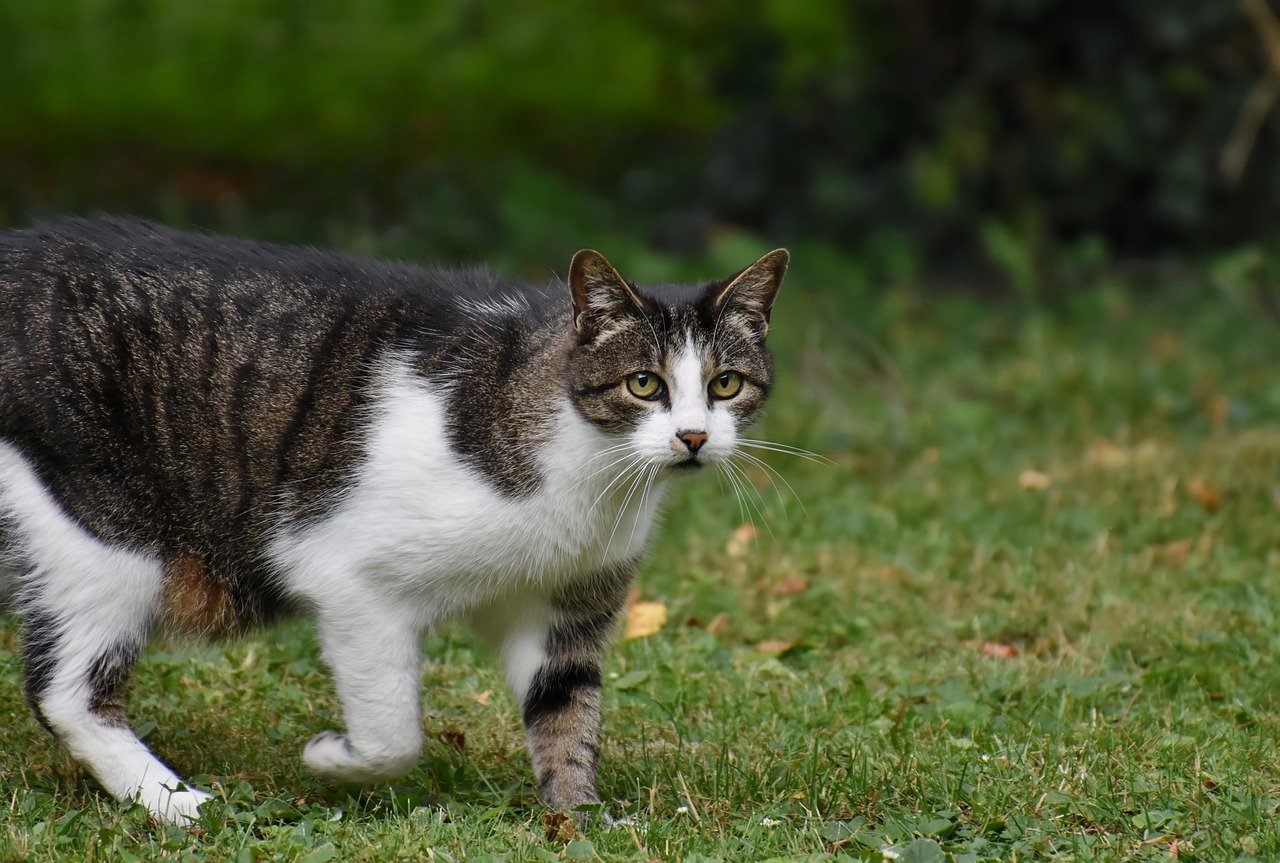
Cats are undeniably adorable creatures, but their playful spirit can sometimes wreak havoc on our beloved gardens. Whether they’re using your flowerbed as a personal litter box or mistaking your prized petunias for chew toys, feline friends can pose a significant threat to your horticultural haven.
Here are 7 simple yet effective tricks to transform your garden from a feline playground into a flourishing oasis, all without harming a single whisker.
The Power of Scent: Turning Whiskers into Wrinkled Noses
Cats possess an incredibly keen sense of smell, a trait we can use to our advantage. Certain scents that humans find pleasant are highly offensive to felines. Here’s how to create a fragrant feline-repellent force field:
- Citrusy Siege: Cats despise the smell of citrus fruits like lemons, oranges, and grapefruits. Scatter peels around the perimeter of your garden, or create a DIY citrus spray by boiling citrus rinds in water and letting it cool. Reapply this fragrant solution after rain or watering.
- The Spice is Right (For Repelling Cats): Cayenne pepper is another scent that sends shivers down a cat’s spine. However, be cautious when using it near plants, as it can irritate some delicate foliage. Instead, sprinkle a light dusting of cayenne pepper around the edges of your garden beds, focusing on areas where cats tend to enter.
- Coffee Chaos: The robust aroma of coffee grounds is another effective deterrent. Sprinkle a thin layer of used coffee grounds around your plants (avoid using fresh grounds as they can alter soil pH). As an added bonus, coffee grounds can also act as a natural fertilizer for some plants.
Remember: When using any of these methods, be sure to refresh the scents regularly, especially after rain or watering.
Outsmarting the Hunter: Making Your Garden a Maze, Not a Playground
Cats are natural-born hunters, and a wide-open garden can be an irresistible invitation for stalking and pouncing. Here’s how to transform your garden into a feline obstacle course:
- The Spiky Squad: Cats detest walking on anything uncomfortable for their delicate paws. Scatter pine cones, holly branches, or even crushed eggshells (be mindful of local regulations) around your flowerbeds. This prickly perimeter will discourage curious kitties from exploring further.
- Feline Fort Knox: Physical barriers are a highly effective way to deter feline trespassers. Consider installing chicken wire fencing around your garden beds, ensuring it’s buried slightly underground to prevent determined diggers from creating an entrance.
- Planting Power: Strategic planting can be a beautiful and effective way to deter cats. Opt for plants with prickly or thorny foliage, such as roses, holly bushes, or lavender. These natural deterrents will not only discourage feline visitors but also add a touch of beauty to your garden.
Creating a Kitty Paradise Elsewhere: Distraction is Key
Sometimes, the best defense is a good offense. By providing cats with a designated area to indulge their natural instincts, you can divert their attention away from your precious plants.
- Catnip Nirvana: Plant a dedicated patch of catnip in a designated area of your yard. This irresistible herb will provide cats with a safe and satisfying place to explore and play, keeping them away from your prized blooms.
- Scratching Post Paradise: Cats have a natural urge to scratch, and your furniture often becomes the unfortunate target. Provide an appealing scratching post in your garden, made from sturdy materials like sisal or cardboard. Place it near the catnip patch to create a dedicated feline fun zone.
- The Thrill of the Hunt: Cats love to stalk and pounce. Hide small toys or balls filled with catnip around your garden, encouraging them to explore designated areas for their prey instead of your plants.
Harmony in the Garden: Living Alongside Feline Friends
While keeping cats out of your garden is a worthy goal, it’s important to find humane solutions that don’t harm these curious creatures. Here are some additional tips for coexisting peacefully with your feline neighbors:
- Be Patient: It may take some time for these deterrents to take effect. Be patient and consistent with your chosen methods.
- Humane Options: Avoid using harmful traps or chemicals to deter cats. There are plenty of humane and effective solutions available.
- Talk to Your Neighbors: If stray cats are a frequent problem, consider talking to your neighbors about implementing similar deterrents in their yards to create a feline-free zone.
